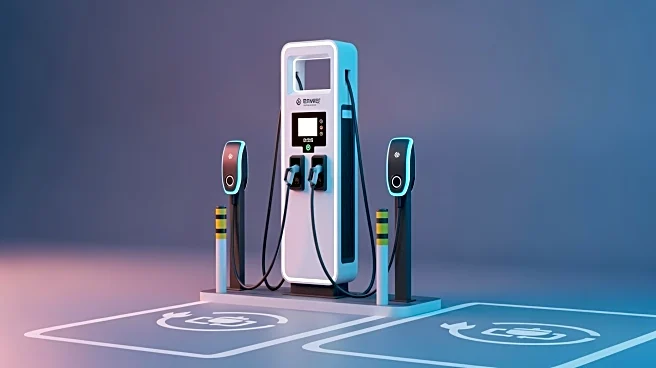What's Happening?
Nissan has entered into a CO2 pooling agreement with BYD to meet its 2025 emission targets. This strategic move comes after Nissan's previous pooling agreement with Renault expired at the end of 2024. The European Commission has relaxed CO2 regulations
for the 2025-2027 period, allowing manufacturers to average their emissions over these years. Nissan, facing a significant gap between its current CO2 emissions and its 2025 target, opted for BYD due to its strong electric vehicle sales, which help lower the overall CO2 fleet value. BYD, a Chinese manufacturer, sells only electric and plug-in hybrid vehicles, making it an attractive partner for Nissan. In contrast, Renault has decided not to enter a new pooling agreement, believing it can meet its targets independently.
Why It's Important?
This partnership is crucial for Nissan as it struggles to meet stringent CO2 emission targets set by the European Union. By pooling with BYD, Nissan can leverage the latter's low CO2 fleet value, thus avoiding potential penalties. This move highlights the growing importance of electric vehicles in the automotive industry as manufacturers seek to comply with environmental regulations. The decision also underscores the competitive landscape where automakers must strategically align with partners to meet regulatory demands. For BYD, this agreement enhances its presence in the European market, showcasing its role as a key player in the transition to cleaner automotive technologies.
What's Next?
Nissan will continue to focus on expanding its electric vehicle lineup to improve its CO2 fleet performance. The company plans to launch new models, such as the electric Micra and the new Leaf, in 2026. Meanwhile, other manufacturers like Volkswagen, Hyundai, and Kia have yet to announce their pooling partners for 2025, indicating potential future collaborations. The automotive industry will closely monitor these developments as companies navigate the evolving regulatory landscape and consumer demand for sustainable vehicles.
















